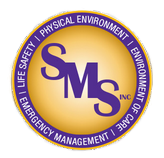One common aspect of every Joint Commission survey is the propensity for the surveyors to ask questions of staff members related to The Physical Environment. Generally speaking, surveyors will ask general questions of hospital leaders during interviews, and more specific questions of managers and unit/department staff.
To best prepare staff for these questions and help ensure a good survey outcome, it is generally considered good practice to rehearse questions on key topics with staff across the organization. Most commonly TJC surveyors will ask questions of Nurses, Environmental Service Workers, Dietary Staff, Respiratory Therapists, Security Officers, Laboratory Staff, and many others.
The range of areas the draw question from include all aspects of the Physical environment, including but not necessarily limited to:
- Safety
- Security
- Hazardous Materials and Wastes
- Fire Safety
- Medical Equipment
- Utilities Systems
- Emergency Management
- Pre-Construction Risk Assessment
It can be common practice for a surveyor to single out one employee and ask a series of progressively more difficult questions. It can be equally as common for a surveyor to gather a group of employees, either all from one department or representing various departments and asking their questions of the group and allowing them to answer as a team.
Whatever their approach, the goal is to determine if organizationally, staff have been provided with the information they need to work safely and protect patients and if they have sufficiently absorbed this information.
When preparing for a survey, we suggest the following as some of the possible and more relevant questions that surveyors commonly address during this questioning.
Safety:
- If you sustain an injury, what is the process for reporting it?
- Where and how do you dispose of sharps?
- Where in the building are you allowed to smoke? (nowhere)
- What ligature risks do you have on the behavioral unit, ED, etc?
Security:
- What is the code for an infant abduction alarm?
- What is your personal responsibility when you hear the infant abduction alarm?
- How and where does the infant abduction system work?
- How do you get security support when you have a combative patient or visitor?
Hazardous Materials:
- How do you obtain a Safety Data Sheet?
- How many compressed gas cylinders may you have in a smoke zone?
- How must compressed gas cylinders be separated?
Fire Safety:
- Where is the nearest fire alarm?
- Where are the nearest smoke doors?
- How and where do you relocate patients in a fire if needed?
- Who can authorize shutting off the oxygen valve?
- Who can order building evacuation?
Medical Equipment:
- How do you know equipment has been tested and is safe for use?
- What type of outlet should defibrillators be plugged into.?
- How do you identify broken medical equipment and who gets notified?
Utility Systems:
- Which electrical outlets work during a power failure?
- Which lights work during a power failure?
- What type of extension cords are allowed in the patient vicinity?
Emergency Management:
- How will you know if the disaster plan has been initiated?
- What is the code for a Mass Casualty?
- What is the code for a Tornado?
- What do you do if the hospital goes on lockdown?
These are just some of the common questions a surveyor might ask during a survey. Drilling staff on these questions regularly on these and other questions will help insure survey readiness. Keeping statistical information on the percentage of right and wrong answers as well as which units scored well or poorly, will enable you to show the surveyors that you train your staff, test your staff, and have them properly prepared at all times regarding the Physical Environment.
